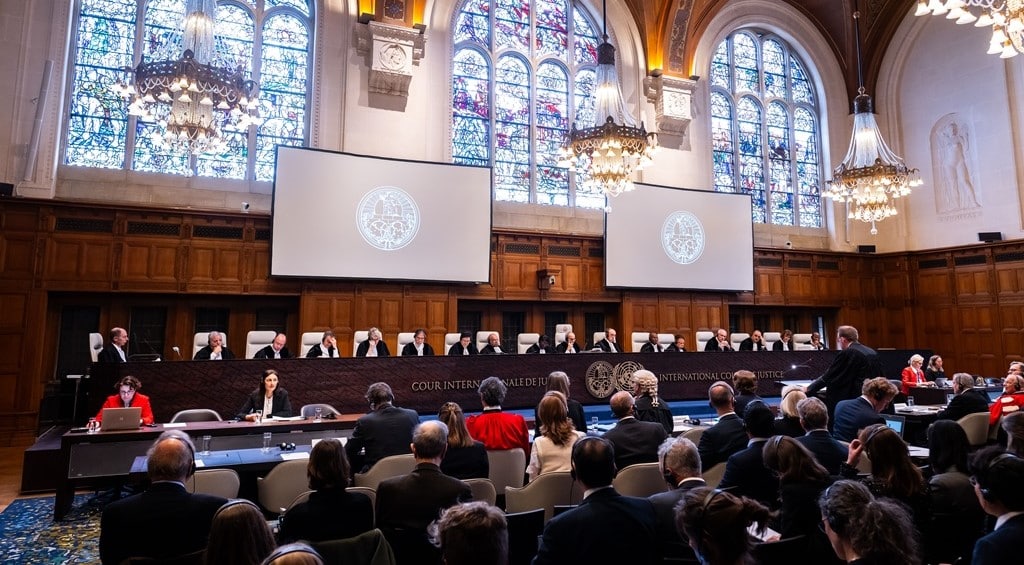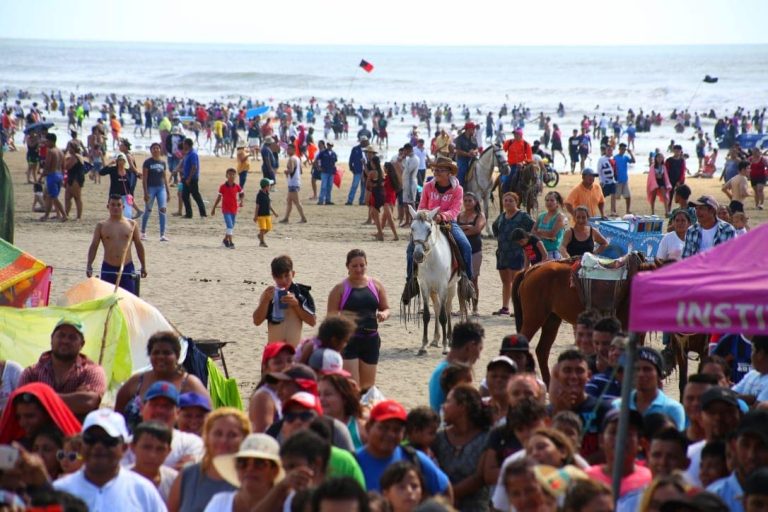31 de marzo 2021

ICJ Rules Against Nicaragua's Request For Germany to Halt Arms Sales to Israel

PUBLICIDAD 1M
PUBLICIDAD 4D
PUBLICIDAD 5D
Independent physicians argue that health authorities must speed up immunization to reduce covid-19 mortality

Official media reported a large influx of visitors to the beaches since January 1
The Ministry of Health (Minsa) announced the deployment of 3461 health professionals and the availability of 54 mobile clinics in the country's main beaches, as part of its Summer Plan. This decision has been questioned by independent physicians, who claim that the priority should be to attend to the pandemic and accelerate vaccination against covid-19 to reduce mortality.
"At this moment, all efforts should be aligned on how to define a strategy to vaccinate as many people as soon as possible with the existing vaccines and avoid that as many people as possible become infected," said epidemiologist Rafael Amador.
However, the Summer Plan that the Minsa presented to official media outlets on Friday, March 26, did not include any effort to motivate the population to stay at home and avoid crowds. The former Minister of Health and current presidential advisor Sonia Castro, expressed that they would protect the health "and the happiness of our population who will enjoy their summer vacations."
Castro assured that 203 medical brigades will be mobilized and 393 health fairs will be held in the main beaches of the country. She added that if fever cases are identified at these fairs and a doctor approves it, patients will undergo the PCR test to detect covid-19. The Minsa maintains the centralization of molecular tests and it is not known how many tests it has performed for over a year. In March, the first case of covid-19 was detected in the country.
On one hand, the Government promotes that the population visits the beaches or carry out some type of tourist activity, and on the other hand, the Ministry of Health plans a deployment at beaches and recreational centers, and talks about controlling the risk of covid-19 infection, which is "much more difficult to control", questions Amador.
The specialist is concerned about the pace that the pandemic could take in the country, especially now that the population thinks that they no longer have to wear masks, despite the fact that the independent Citizen Observatory reports new cases of covid-19 with different levels of severity every week, he warned.
José Antonio Vásquez, president of the Nicaraguan Medical Unit (UMN), the Minsa's Summer Plan corresponds more to an action of "political propaganda" and considers it a "misdirected (economic) resource".
Carlos Hernández, a health professional and member of the Multidisciplinary Scientific Committee (CCM), sees the mobilization of a large number of health personnel, which implies expenses for fuel, travel and food as a paradox, considering that the government has stated that the country has a solid permanent health network, and therefore, it would have been enough to strengthen it for the season.
However, the Minsa also said that it will reinforce the shifts in hospitals and emergency services "to be prepared for an eventual increase in demand" during Holy Week.
The Minsa started the vaccination against covid-19 on March 2. However, it is not currently known how many people have been immunized with the first dose, and how many have already completed the Sputnik V vaccination schedule.
In general terms, the Vice President and government spokeswoman Rosario Murillo assured that 3000 people would be vaccinated with the 6000 doses donated by the Russian Federation.
This Friday, Minsa included the application of the second dose of Sputnik V to 1115 people in its Summer Plan. Until April 6, 30 days after the arrival of the 200,000 Covishield vaccines donated by India and 21 days after the arrival of the 135,000 doses donated by COVAX, vaccination will begin in patients with heart disease, oncology and people over 60 years of age with chronic diseases, explained Murillo. The information shared by the authorities regarding upcoming vaccination dates is the only one available, since they do not present a national vaccination plan.
Health specialist Hernández recalls that international monitoring of the development of vaccination against Covid-19 in the region indicates that “speed is the key to fulfill the reduction of mortality " and, at the same time, to avoid the spread of SARS-CoV-2 virus variants. However, the pace of vaccination in the country remains very slow, despite the 335,000 doses of vaccine that have been stockpiled for weeks.
If vaccination continues in the way it has been carried out, "We will never fulfill the tasks and the urgency that is needed in Nicaragua to avoid mortality and to prevent Nicaragua from becoming a channel of transmission of the virus variants", explained Hernandez.
"The Minsa should be concentrating on prioritizing the vaccination plan. The vaccination plan is urgent, urgent (...)", alerted the health specialist, who has carried out studies on excess mortality, and revealed that during 2020 there was an excess of 9000 deaths, attributable to covid-19.
Doctors consulted by CONFIDENCIAL explained that the greatest risk that comes with the relaxation of the measures by part of the population is the increase of Covid-19 cases, as already occurred after the Christmas and New Year holidays.
Epidemiologist Amador explained that new infections will not be seen immediately after Easter, but around 15 days later. Therefore, he considers that the priority should be to reinforce the immunization strategy and containment of the contagion, instead of sending health workers to activities near the beaches.
At the beginning of the year, the CCM alerted the population that the country was facing the beginning of a second wave of covid-19 infections. Health specialist Hernández assures that "the trend is upward, even if it is slow and irregular".
This article been translated by Ana María Sampson, a Communication Science student at the University of Amsterdam and member of our staff*
PUBLICIDAD 3M
PUBLICIDAD 3D